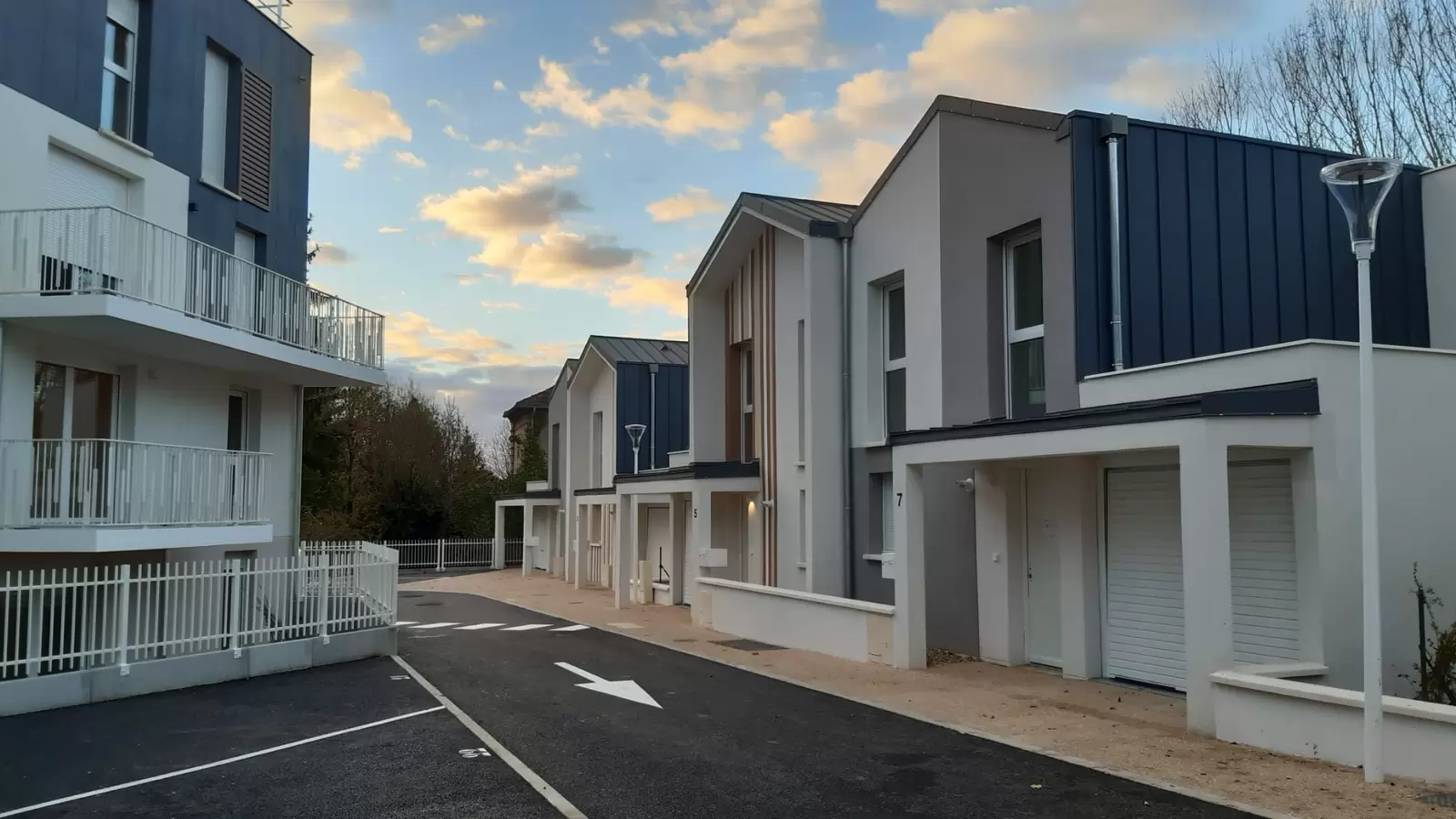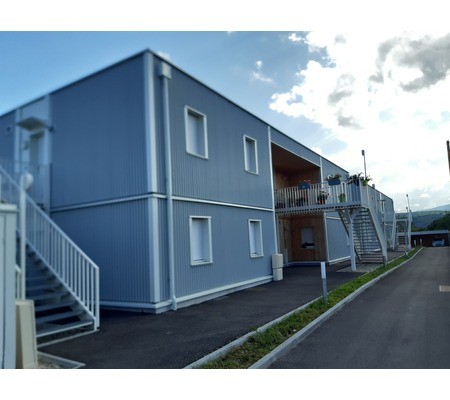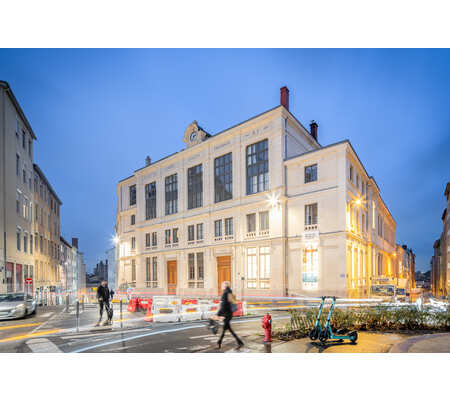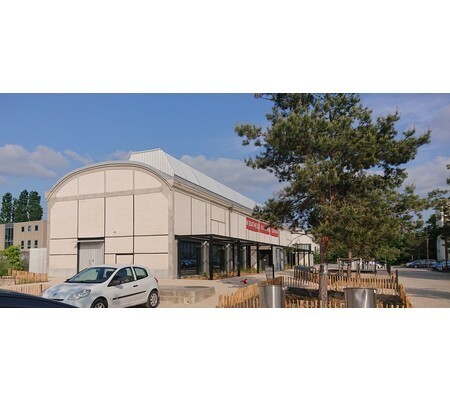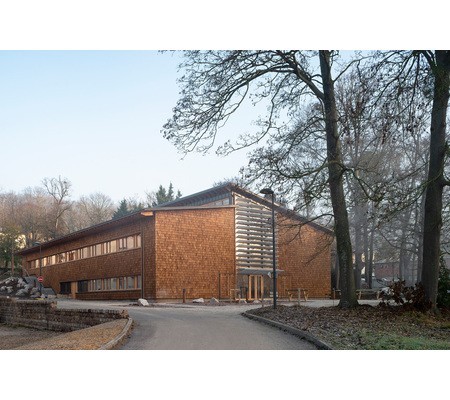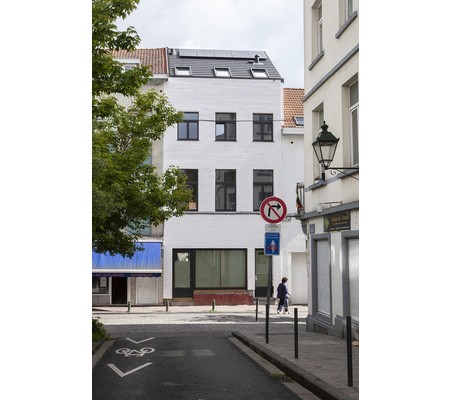Horizon Nature
Last modified by the author on 08/01/2024 - 14:19
New Construction
- Building Type : Collective housing < 50m
- Construction Year :
- Delivery year : 2023
- Address 1 - street : 144 Avenue Thibaud de Champagne 77144 MONTéVRAIN, France
- Climate zone : [Cfb] Marine Mild Winter, warm summer, no dry season.
- Net Floor Area : 5 095 m2
- Construction/refurbishment cost : 22 519 900 €
- Number of Dwelling : 75 Dwelling
- Cost/m2 : 4420 €/m2
-
Primary energy need
48.9 kWhep/m2.an
(Calculation method : RT 2012 )
The "Horizon Nature" project consists in the construction of 67 intermediary and collective housing units and 8 individual houses for a total of 75 housing units in the town of Montévrain, in a natural, green and preserved setting, near the banks of the Marne.
The developer Immobel has opted for a Global Quality approach in order to deliver a perfectly executed project. At the same time, the desire to minimise the environmental impact of the operation was integrated at each stage. CSR support provided by Velux made it possible to deliver sustainable housing, while taking into account the future experience of residents.
Comfortable accommodation
The comfort of the occupants has been considered on several aspects. On a visual level, the provision of natural light was maximised, in particular through an atypical system of Velux skydomes installed in certain buildings. These domes can also be used for ventilation during heatwave periods. For the windows, solar protection protects against high heat.
Comfort of use is another aspect that has been integrated into the approach. Various services such as connected parcel boxes are offered to buyers, for better management of their home and better ergonomics.
The search for energy savings
With a view to reducing the environmental impact of the whole, the Primary Energy Coefficient of the housing is 20 to 30% lower than the thresholds of the 2012 French thermal regulations. The building envelope is reinforced through the use of insulating terracotta load-bearing bricks, a material with lower emissions than concrete.
Heating and domestic hot water are provided by individual micro-storage gas boilers for collective housing. The first year of maintenance of these boilers is covered by the Project Owner, for better maintenance. The eight suburban houses are also equipped with self-consumption photovoltaic panels. Support by GRDF resulted inan agreement with a local farmer developing a biomethane plant, with the aim of injecting this green gas into the project network. In addition, remote control systems for the equipment make it possible to reduce energy consumption.
The injection of biogas into the network demonstrates our efforts to contribute to the emergence of a new generation of cleaner, more virtuous, more qualitative housing: the operation was therefore a real laboratory of tests and innovations!
Yves Eveillard, Residential Technical Director at IMMOBEL
Finally, soft mobility is encouraged by the provision of electric charging stations for visitors.
A respected natural setting
From the first phases of the operation, the watchword was to adapt the project to its environment rather than the opposite. For example, the sloping nature of the land was respected, which made it possible to limit pollution linked to earthworks and embankments.
The plantations have been densified and the species carefully selected so as to favor local species. This vegetation will serve as refuge areas for local wildlife, while creating islands of freshness. Insect hotels, bird nest boxes and even bat roosts placed in different locations throughout the operation help promote biodiversity.
A green construction site approach
The integration of sustainable development was also done during the construction works. Various measures have made it possible to reduce nuisance and energy consumption, such as the use of hybrid mechanical machines for earthworks. In addition, the choice of local companies for the works - six of them are located less than 15 kilometers from Montévrain - has significantly reduced travel requirements.
To raise buyers' awareness of biodiversity preservation issues, educational workshops were organised and beehives were installed during the construction phase. The honey produced was even offered to them! Visits to the biomethanization plant are also planned for the future.
See more details about this project
https://www.grdf.fr/entreprises/grdf-et-vous-au-quotidien/actualites/pyramides-grand-public-2021-gagnants/montevrain-horizon-nature-immobel-montevrain-77Photo credit
IMMOBEM
Contractor
Construction Manager
Stakeholders
Other consultancy agency
P.Cé TECH
contact[at]pcetech.fr - 01 45 11 76 01
https://www.pcetech.fr/Fluid consulting
Company
GRDF
https://www.grdf.fr/Biogas injection into the network
Company
VELUX
https://www.velux.fr/CSR support
Type of market
Not applicable
Allocation of works contracts
Separate batches
Energy consumption
- 48,90 kWhep/m2.an
- 71,40 kWhep/m2.an
Envelope performance
- 0,80
Systems
- Individual gas boiler
- Individual gas boiler
- No cooling system
- Humidity sensitive Air Handling Unit (Hygro B
- Solar photovoltaic
Biodiversity approach
- Insect hotels,
- Birdhouses,
- Bat roosts.
Urban environment
- 4 426,00
Product
Biomethane

GRDF
https://projet-methanisation.grdf.fr/Génie climatique, électricité / Chauffage, eau chaude
Methanization is a natural biological process of degradation of animal or plant organic matter in the absence of oxygen (anaerobic), thanks to the action of multiple micro-organisms. It occurs naturally in certain environments such as marshes or can be implemented voluntarily in dedicated facilities.
Methanization produces two kinds of components:
- Biomethane which is injected into networks to satisfy industrial (heat), domestic (heating, domestic hot water, cooking) or fuel (BioNGV) uses;
- Digestate which can be used as fertilizer or as an organic amendment.
Roof cupola

VELUX
https://www.velux.fr/produits/fenetres-toit-plat/fenetre-coupoleSecond œuvre / Menuiseries extérieures
With its classic dome shape, the dome flat roof window ensures easy drainage of rainwater and dirt. It is perfectly suited to public buildings and residential rooms:
- Very good thermal insulation properties;
- Reduced rain noise thanks to integrated insulating glazing;
- Combinable with protection against heat and sun.
Construction and exploitation costs
- 22 519 900 €




